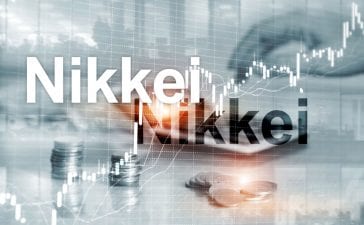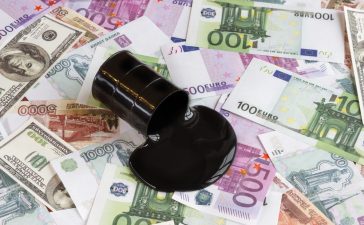Pfizer and BioNTech have announced that two of the companies’ four investigational vaccine candidates received Fast Track designation from the U.S. Food and Drug Administration
Despite another sharp surge in new cases of coronavirus infection around the world over the weekend, European markets closed higher on Monday, as investors picked up stocks amid growing optimism about potential coronavirus vaccines.
In vaccine news, Pfizer and BioNTech have announced that two of the companies’ four investigational vaccine candidates received Fast Track designation from the U.S. Food and Drug Administration. The companies also said that they expect to start the next phase of trials as soon as later this month are anticipating enrolling up to 30,000 subjects.
If the ongoing studies are successful and the vaccine receives regulatory approval, Pfizer and BioNTech expect to manufacture up to 100 million doses by the end of 2020 and potentially more than 1.2 billion doses by the end of 2021.
Slightly positive news about progress in Brexit talks and France’s economic recovery plan also contributed to the buoyant mood in European markets.
British Cabinet Secretary Michael Gove said on Sunday that some progress has been made in Brexit talks despite some difference of views.
In France, Prime Minister Jean Castex said the recovery plan is almost ready, while the country’s finance minister added that a massive support scheme for youth employment is likely this week and a big stimulus plan that would include tax cuts for companies will be unveiled by the end of next month.
The pan European Stoxx 600 surged up 1%. The U.K.’s FTSE 100 advance 1.33%, Germany’s DAX gained 1.32% and France’s CAC 40 SMI climbed up 1.73%, while Switzerland’s SMI ended up 0.69%.
Among other markets in Europe, Austria, Belgium, Czech Republic, Denmark, Finland, Iceland, Ireland, Netherlands, Norway, Spain, Sweden and Turkey closed with sharp to moderate gains.
Poland and Portugal edged up marginally, while Greece and Russia ended weak.
In the U.K. market, Scottish Mortgage and Fresnillo climbed up 5.4% and 5.3%, respectively. Johnson Matthey, TUI, Rio Tinto, Intercontinental and Rentokil Initial gained 3 to 4%.
BHP Group, Flutter Entertainment, Hargreaves Lansdown, Whitbread, Royal Dutch Shell, Aveva Group, SMith & Nephew, Evraz, Anglo American, Rightmove, Standard Chartered, Ferguson and Unilever gained more than 2%.
Shares of security firm G4S rallied sharply after the company expressed confidence that it first-half adjusted PBITA and underlying earnings will be “significantly” above market expectations.
In France, ArcelorMittal gained about 5.2%. Technip and Safran both ended stronger by nearly 4.5%. Airbus, Essilor, Peugeot, BNP Paribas, Cap Gemini, Bouygues, Sanofi, Kering, Air Liquide, Vinci, STMicroElectronics, Societe Generale, Engie and Saint Gobain gained 1.5% to 4%.
Shares of video games maker Ubisoft Entertainment declined more than 5% after the company announced staff departures following allegations of misconduct and inappropriate behaviour.
In the German market, Thyssenkrupp rallied 6.5% and Wirecard moved up 5%. Adidas, Infineon Technologies, Henkel, Beiersdorf, Linde and BASF ended stronger by 2 to 3%.
SAP, Covestro, Daimler, HeidelbergCement, Allianz, Deutsche Telekom, Deutsche Post, Bayer, Merck, Siemens and Fresenius also closed notably higher, while Fresenius Medical Care and Deutsche Bank ended weak.
Finnish valves maker Neles saw its shares surge almost 38% after Swedish industrial group Alfa Laval announced a 1.73 billion euro ($1.96 billion) cash bid for the company.
In economic news, Germany’s economy began to recover after easing of coronavirus containment measures, the Economy Ministry said Monday. The economy has passed the trough. However, the ministry said the recovery process is just beginning and the capacities are still underutilized.
According to the ministry, industrial production has bottomed out. Production is expected to pick up in months ahead on increased order intake. Nonetheless, weak demand from non-European economies remains a risk for the further recovery.
Further, the government noted that leading indicators recovered somewhat but a lasting improvement is not expected in the coming months.
Data from Destatis revealed Germany’s wholesale prices continued to fall in June, but the pace of decline slowed. Wholesale prices dropped 3.3% annually in June after easing 4.3% in May. This was the fifth consecutive decrease in prices. On a monthly basis, wholesale prices advanced 0.6% in June, offsetting a 0.6% fall in May. Prices climbed for the first time since February.
On Friday, European Council President Charles Michel laid out a plan for long-term budget and recovery for the coronavirus-hit members of the European Union. The EU summit involving 27 leaders from euro area countries is set to take place later this week.
In the revised proposal that Michel presented, the size of the European long-term budget called Multi-annual Financial Framework (MFF) is envisioned at EUR 1.074 trillion ($1.22 trillion).
The proposal was initially discussed on June 19 and attracted strong opposition from some members. Subsequently, Michel held bilateral negotiations with all leaders.
The rebates for Denmark, Germany, the Netherlands, Austria and Sweden will be maintained, Michel said. He proposed the size of the Covid-19 Recovery package to be EUR 750 billion ($849.86 billion) and these funds can be used for back-to-back loans and spending through MFF programmes.





